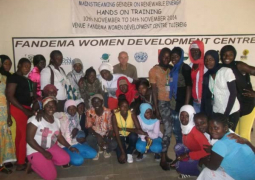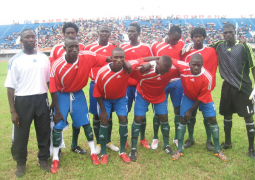This first International Day of the Girl Child is a groundbreaking moment to raise awareness about enduring discrimination and to mobilise stronger action for human rights.
Across the world, girls carry the heaviest burden of poverty, marginalisation and violence. Their rights are violated through early marriages, active discrimination and lack of opportunity. For far too many, being born a girl remains a lifelong sentence to inequality and injustice. This violates basic rights and holds back communities and societies from sustainable development.
Education is the most powerful way to break this vicious circle. Education gives girls tools to shape the world according to their aspirations. It can delay early marriages and help with family planning. It provides strong medicine against disease and ill-health. There is simply no better investment a society can make than in the rights of girls. The impact ripples far beyond individuals to take in the health and wellbeing of societies well into the future.
We estimate that thirty-two million girls who should be are not attending primary school today. This must change. UNESCO is committed to ensuring every girl has access to quality education. We must get girls into school and make sure they stay the course, from primary through secondary and onto higher education.
To these ends, we work with States to ensure their education systems are adapted to the needs of girls. We collaborate with ministries of education to train policy-makers, planners, managers and teachers. We strive to provide girls and young women with second chances if they never enrolled or dropped out of schooling. These are the goals guiding UNESCO’s Global Partnership for Girls and Women’s Education, launched in 2011 and working closely with the private sector.
The rights of girls are a key issue for social justice. Governments everywhere must do far more to protect them, to bolster girls’ capacities and to create conditions for the fulfilment of their aspirations. This requires stronger legislation and policies of protection and inclusion. It calls for targeted work to break stereotypes and promote new models.
Empowering girls means empowering societies as a whole. On this first International Day of the Girl Child, I call on all States to adopt this breakthrough strategy for human rights and development.
Across the world, girls carry the heaviest burden of poverty, marginalisation and violence. Their rights are violated through early marriages, active discrimination and lack of opportunity. For far too many, being born a girl remains a lifelong sentence to inequality and injustice. This violates basic rights and holds back communities and societies from sustainable development.
Education is the most powerful way to break this vicious circle. Education gives girls tools to shape the world according to their aspirations. It can delay early marriages and help with family planning. It provides strong medicine against disease and ill-health. There is simply no better investment a society can make than in the rights of girls. The impact ripples far beyond individuals to take in the health and wellbeing of societies well into the future.
We estimate that thirty-two million girls who should be are not attending primary school today. This must change. UNESCO is committed to ensuring every girl has access to quality education. We must get girls into school and make sure they stay the course, from primary through secondary and onto higher education.
To these ends, we work with States to ensure their education systems are adapted to the needs of girls. We collaborate with ministries of education to train policy-makers, planners, managers and teachers. We strive to provide girls and young women with second chances if they never enrolled or dropped out of schooling. These are the goals guiding UNESCO’s Global Partnership for Girls and Women’s Education, launched in 2011 and working closely with the private sector.
The rights of girls are a key issue for social justice. Governments everywhere must do far more to protect them, to bolster girls’ capacities and to create conditions for the fulfilment of their aspirations. This requires stronger legislation and policies of protection and inclusion. It calls for targeted work to break stereotypes and promote new models.
Empowering girls means empowering societies as a whole. On this first International Day of the Girl Child, I call on all States to adopt this breakthrough strategy for human rights and development.



